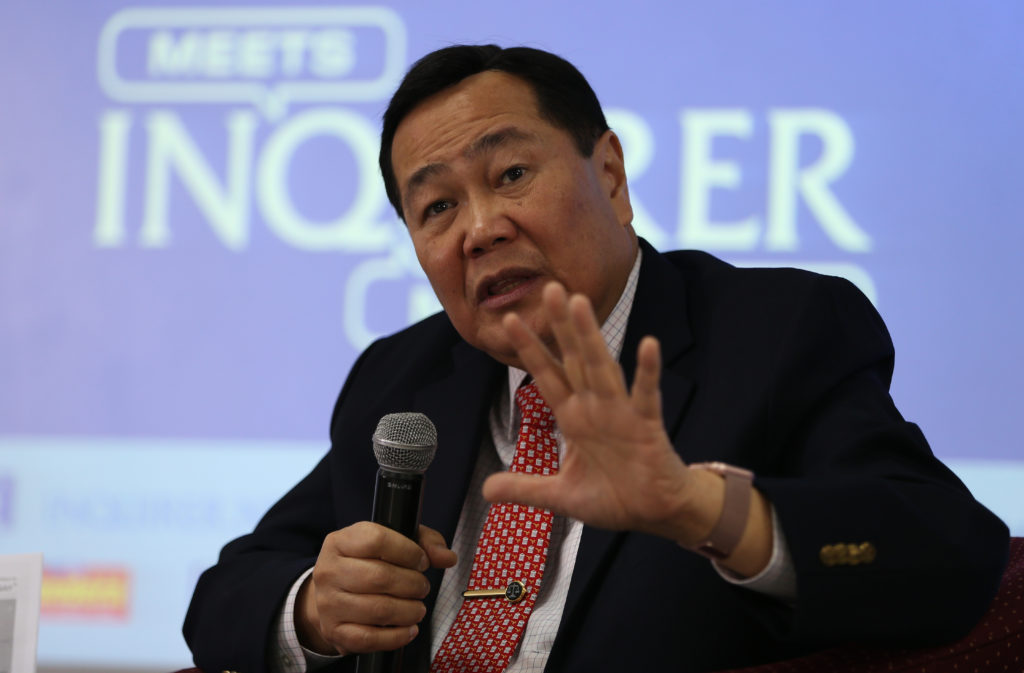The Philippines should take a bold step in defending its sovereignty in the West Philippine Sea by encouraging neighboring states to conduct with it joint freedom of navigation patrols in the hotly contested South China Sea, acting Chief Justice Antonio Carpio on Sunday said.
West Philippine Sea is the local name of the waters within the Philippines’ 370-kilometer exclusive economic zone (EEZ) in the South China Sea recognized under the United Nations Convention on the Law of the Sea.
China radio warnings
China claims nearly all of the South China Sea, including waters within the EEZs of its Southeast Asian neighbors that also have claims in the strategic waterway — Brunei, Malaysia, the Philippines and Vietnam.
Carpio, a staunch critic of President Rodrigo Duterte’s handling of the territorial dispute between Manila and Beijing, also warned that China may “choke off” the supply route to Philippine-claimed islands in the Spratly archipelago after reports of radio warnings by the Chinese to Philippine ships and aircraft to stay away from its man-made islands in the strategic waterway.
He said the Philippines should take a cue from the world naval powers, which had been sailing through the South China Sea to assert their freedom of navigation
“We have to assert that there’s freedom of navigation there [in the West Philippine Sea]. China can’t stop us,” Carpio told the Inquirer.
“If we are bold, then we should conduct joint freedom of navigation operations in the EEZs of the South China Sea not only with the world naval powers, but also with Vietnam, Malaysia, Brunei and Indonesia,” he said.
Since the Permanent Court of Arbitration in The Hague handed down its decision in July 2016, Carpio said, the United States, United Kingdom, France, India, Australia and Japan have sent ships to the South China Sea to enforce the landmark ruling.
‘We should encourage it’
Carpio, a member of the Philippine legal team that successfully argued the country’s case before the Hague court, said the presence of foreign navies in the South China Sea refuted Mr. Duterte’s claim that nobody was implementing the decision.
Said Carpio: “We should welcome and encourage it. That’s the least we can do because it redounds to our benefit.”
“This enforces the principle that EEZs are all around the South China Sea, including our own. We will benefit from it because we are an adjacent coastal state,” he added.
